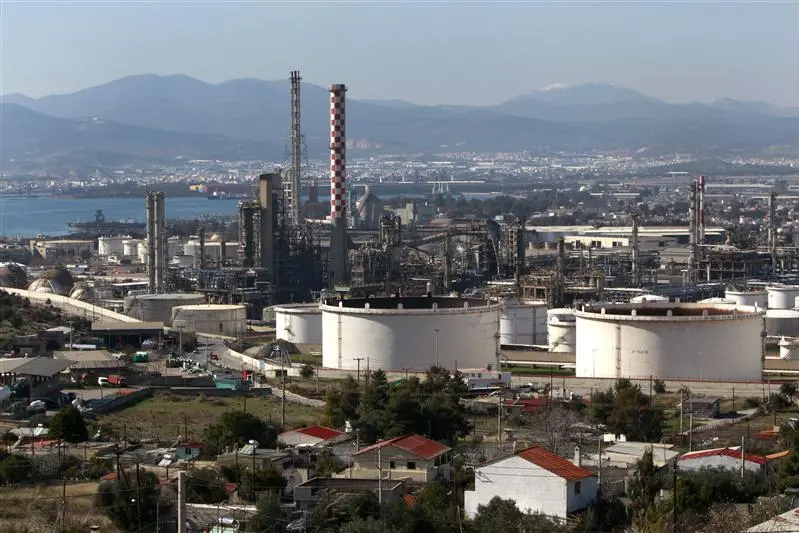PHOTO
Oil prices gyrated and Asian shares fell on Tuesday as Ukraine peace talks made little headway and the prospect of a ban on oil imports from Russia triggered investor fears over inflation and slowing economic growth.
President Joe Biden's administration is willing to move ahead with a U.S. ban on Russian oil imports even if European allies do not, Reuters reported on Monday, citing two people familiar with the matter.
Oil prices have already hit 14-year highs and Russia warned that prices could surge to $300 a barrel and it might close the main gas pipeline to Germany if the West halts oil imports over the invasion of Ukraine.
MSCI's broadest index of Asia-Pacific shares outside Japan lost 0.4% in early trade, tracking a bruising Wall Street session. Japan's Nikkei sank 0.3% while Australian shares were down 0.24% amid a sea of red across Asian markets.
Chinese blue chips shed 0.15% while Hong Kong's Hang Seng index rose 0.39% .
International oil benchmark Brent crude, which briefly hit more than $139 a barrel in the previous session, jumped around in morning trade and was up about 0.8% at $124.20.
U.S. crude was up about 0.4% at $119.86 a barrel, while prices of many other commodities, including nickel, rose as industrial buyers and traders scramble as the Russian-Ukraine conflict shows no sign of cooling.
"Global risk sentiment started the week deeply negative, before improving as European leaders indicated they would resist sanctions on Russian energy exports, preferring instead a determined strategy to reduce dependency on Russian imports," ANZ analysts said in a note.
"Markets are volatile, however, and highly sensitive to shifts in tone. The progressive rise in breakeven inflation rates is evidence of mounting inflation concerns as commodity prices remain firmly underpinned."
Russia calls its actions in Ukraine a "special operation," but the move has triggered sweeping sanctions by the United States and Europe that aim to isolate Russia to a degree never before experienced by such a large economy.
Overnight, Wall Street's main indexes fell sharply with the Nasdaq Composite confirming it was in a bear market. The Dow Jones Industrial Average fell 2.37%, the S&P 500 lost 2.95% and the Nasdaq Composite dropped 3.62%.
Shares in U.S. payment companies tumbled on Monday with American Express Co closing down 8.0% after it said on Sunday it was suspending all operations in Russia and Belarus, joining Visa Inc, which fell 4.8% and Mastercard Inc which fell 5.4% after their similar announcements the previous day.
The yield on benchmark 10-year Treasury notes rose to 1.7648% compared with its U.S. close of 1.749% on Monday. The two-year yield, which rises with traders' expectations of higher Fed fund rates, touched 1.5563% compared with a U.S. close of 1.548%.
The rally in oil and other commodities prices will only add to the global inflationary pulse with data this week expected to show the U.S. Consumer Price Index climbed a stratospheric 7.9% on a year-on-year basis in February, up from 7.5% in January.
With the outlook for European growth darkening, the single currency was up 0.1% on the day at $1.086, after taking a beating and falling 3% last week to its lowest since mid-2020.
The dollar index, which tracks the greenback against a basket of currencies of other major trading partners, was up at 99.215.
Gold was slightly lower. Spot gold was traded at $1,989.3546 per ounce.
(Reporting by Julie Zhu, editing by Richard Pullin)
Reuters




















